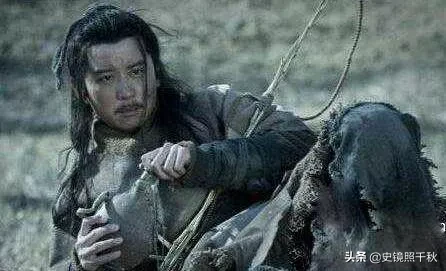When Chairman Mao read the "History of Chen Shijia", he wrote down a four-word criticism.
In 209 BC, Chen Sheng and Wu Guang led more than 900 lu zuoshu to yuyang north, but were stranded in Daze Township because of heavy rain.
According to the laws of the Qin Dynasty, it was a capital offense for a pawn not to arrive at the designated place at the prescribed time.
In order to survive, Chen Sheng and Wu Guang had to lead the pawns to rise up.
The rebel army received a positive response from Lao Bai and grew rapidly, and Chen Sheng also established himself as king and established the Zhang Chu regime.
However, only six months later, Zhang Chu's regime was rapidly destroyed by the murder of Chen Sheng and Wu Guang.
Sima Qian believed that there were two reasons for Chen Sheng's defeat.
The first is to say that the queen has lost her original intention.
Before his departure, Chen Sheng once met with his companions, "Gou rich and noble, don't forget each other." It turned out that he couldn't do it himself.
Chen Sheng was called the queen, and there were companions who went to him. Because this person told others about some old things about Chen Sheng that year, Chen Sheng felt that he had lost face. Chen Sheng actually killed him!
Second, the employment of personnel is improper.
Zhu Fang and Hu Wu, whom Chen Sheng reused, had limited talent and misbehaved.
Based on their own likes and dislikes, they evaluated performance, promoted, deposed, and tortured and killed civil and military officials, which made people angry and resentful.
The generals sent out were afraid of losing their positions or even their lives, and most of them became independent after growing in strength and possession of territory.
Chen Sheng's strength thus weakened sharply, and he soon suffered defeat.
Chairman Mao very much agreed with Sima Qian's analysis and wrote down the criticisms of "one mistake" and "two mistakes."
Most of the peasant uprisings in Chinese history are like the Dazexiang Uprising, which is difficult to succeed.
Rapid corruption and internal divisions were the main reasons for the failure of the peasant uprising. Tai Shi Gong summed it up very precisely.
#历史有知识 #
